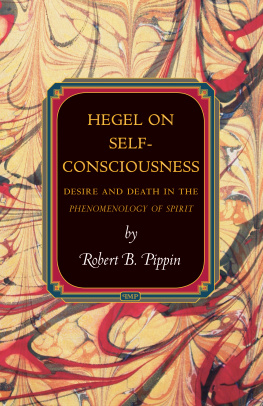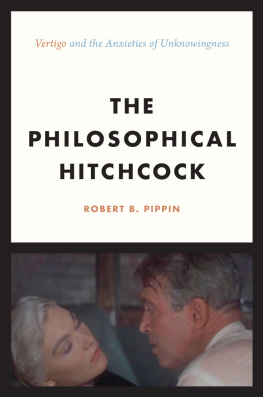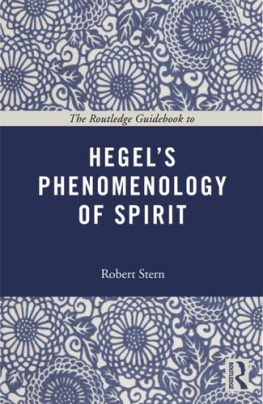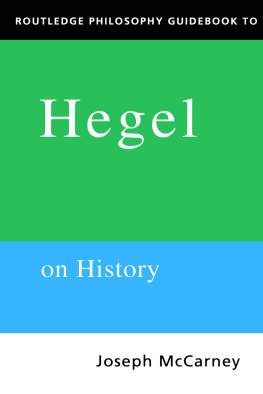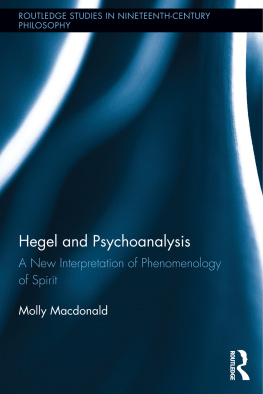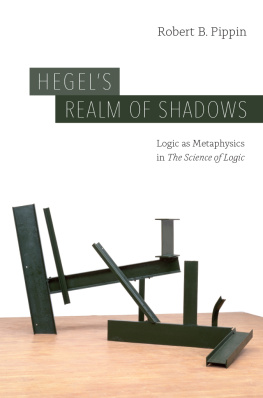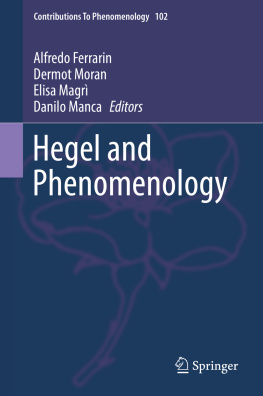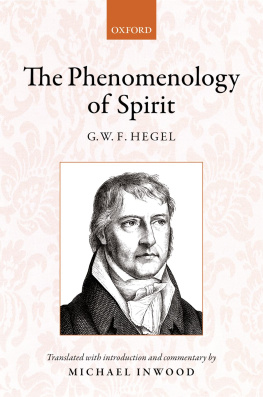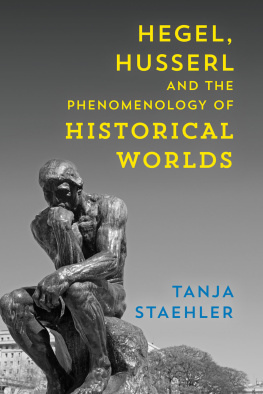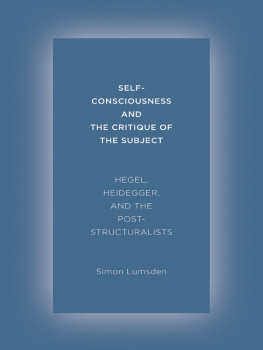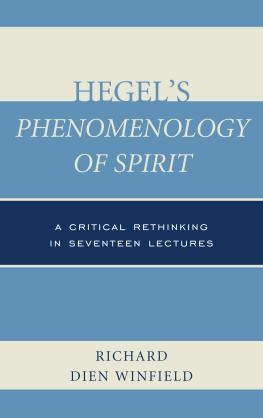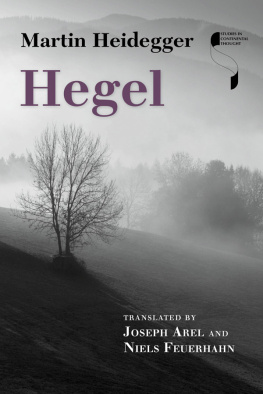HEGEL ON SELF-CONSCIOUSNESS

PRINCETON MONOGRAPHS IN PHILOSOPHY
Harry G. Frankfurt, Series Editor

The Princeton Monographs in Philosophy series offers short historical and
systematic studies on a wide variety of philosophical topics.
Justice Is Conflict by Stuart Hampshire
Liberty Worth the Name: Locke on Free Agency by Gideon Yaffe
Self-Deception Unmasked by Alfred R. Mele
Public Goods, Private Goods by Raymond Geuss
Welfare and Rational Care by Stephen Darwall
A Defense of Hume on Miracles by Robert J. Fogelin
Kierkegaards Concept of Despair by Michael Theunissen
Physicalism, or Something Near Enough by Jaegwon Kim
Philosophical Myths of the Fall by Stephen Mulhall
Fixing Frege by John P. Burgess
Kant and Skepticism by Michael N. Forster
Thinking of Others: On the Talent for Metaphor by Ted Cohen
The Apologetics of Evil: The Case of Iago by Richard Raatzsch
Social Conventions: From Language to Law by Andrei Marmor
Taking Wittgenstein at His Word: A Textual Study
by Robert J. Fogelin
The Pathologies of Individual Freedom: Hegels Social Theory
by Axel Honneth
Michael Oakeshotts Skepticism by Aryeh Botwinick
Hegel on Self-Consciousness: Desire and Death in the
Phenomenology of Spirit by Robert B. Pippin
HEGEL ON
SELF-CONSCIOUSNESS
Desire and Death in the
Phenomenology of Spirit

Robert B. Pippin


Copyright 2011 by Princeton University Press
Published by Princeton University Press,
41 William Street, Princeton, New Jersey 08540
In the United Kingdom: Princeton University Press,
6 Oxford Street, Woodstock, Oxfordshire OX20 1TW
All Rights Reserved
ISBN 978-0-691-14851-9
Library of Congress Control Number: 2010935118
British Library Cataloging-in-Publication Data is available
This book has been composed in Janson
Printed on acid-free paper.
press.princeton.edu
Printed in the United States of America
1 3 5 7 9 10 8 6 4 2

Contents

On Hegels Claim That Self-Consciousness
Is Desire Itself (Begierde berhaupt)
On Hegels Claim That Self-Consciousness Finds Its
Satisfaction Only in Another Self-Consciousness

Acknowledgments

THE FOLLOWING is an expanded and revised version of the Spinoza Lectures given at the University of Amsterdam in April and May of 2009. The idea was to combine an interpretation of what I and many others regard as the most important chapter in all of Hegelthe fourth chapter of the Phenomenology of Spiritwith an essay about the philosophical significance of Hegels ideas.
I am most grateful to the philosophy department at the University of Amsterdam for the opportunity to present these lectures and especially for the opportunity to live and teach in one of the worlds most cultivated, interesting, and beautiful cities. For many small and large favors during my stay, I am especially indebted to the chair of the department Josef Frchtl, to my friend Beate Rssler, to Yolanda Verbeek for her kind and efficient attention to so many of the details of our visit, and to Marijke de Wit for her help with the administration of the masters seminar that I taught on Hegels phenomenology of self-consciousness.
I began to discuss this interpretation of Hegels theory of self-consciousness at a special symposium hosted by Colgate University in November 2008 (the Kokonas Symposium) and I am grateful to the philosophy department there for the invitation and for the many lively and illuminating discussions with members of the department and with students, and to my co-symposiasts, John McDowell and Robert Brandom, for their reaction and comments there and for their work in general, which I have always found inspiring. John McDowells comments and correspondence after the event were especially beneficial in helping me clarify his (and my) understanding of this sometimes baffling, often profound, and clearly pivotal chapter in Hegels work.
HEGEL ON SELF-CONSCIOUSNESS


Introductory Remarks

ONE OF HEGELS MAIN concerns in the revolutionary book he wrote in the German city of Jena while only in his thirties, his Phenomenology of Spirit, is a familiar modern philosophical concern: the attempt to understand the various competencies involved in distinctly human sentience, sapience, and agency, and, especially and above all in Hegels project, the complex inter-relations among all such competencies. So there are in his unprecedented book accounts of sensory receptivity, perception, judgment, generalization, inference, self-consciousness, nomic necessity, justification, as well as of intention, purpose, practical reason, linguistic community, and sociality in general. Hegels account is unusual in that it is conducted via a procedure he invented, a phenomenology, or what he at first called a science of the experience of consciousness. This new procedure, at the very minimum and somewhat crudely summarized, involved imagining possible models of experience (models of its basic structure), primarily experience of objects and of other subjects, restricted to one or some set of competencies, or in some specific relation, and then demonstrating by a series of essentially reductio ad absurdum arguments that such an imagined experience, when imagined from the point of view of the experiencer, really could not be a possible or coherent experience, thus requiring some determinate addition or alteration to repair the imagined picture, and so a new possibility to be entertained. Eventually such an internal testing of models of experience becomes in the course of Hegels developmental account so detailed and rich that it amounts to an examination of the possibility and viability of an actual historical form of life, a historical experience conducted under the assumption of such competencies and their inter-relationship. So once he has assembled all the materials necessary for a full, adequate picture of such a subject of experience (after the first five chapters), he then begins an even more unusual account of the development of such a subject, now a form of
Next page
